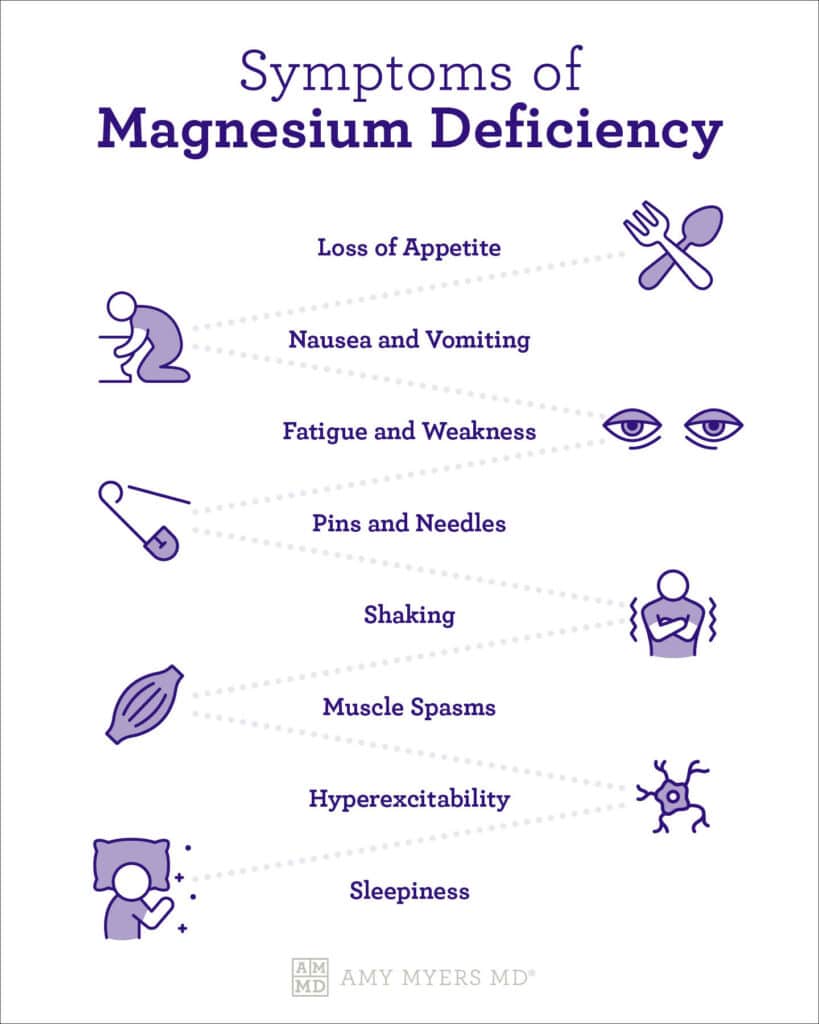Does Magnesium Help You Sleep?

Tossing and turning through sleepless nights can leave you exhausted and seeking solutions, and you might have heard about magnesium’s potential as a snooze-inducing hero. With sleep disorders on the rise, impacting overall health and daily productivity, the quest for a peaceful night’s rest is more urgent than ever. The Vector Sleep Clinic understands this modern dilemma and offers a beacon of hope with their expert care. Whether you’re battling with insomnia, sleep apnea, or simply seeking a more restful slumber, understanding if magnesium can pave the way to the land of nod could be the breakthrough you’ve been looking for. Let’s explore how this mineral might just be your ticket to unlocking the magic of restful nights, where dreams and rejuvenation meet in perfect harmony.
This image is property of content.amymyersmd.com.
Understanding Magnesium
Role of magnesium in the body
Magnesium plays a crucial role in your body, acting as a cofactor for over 300 enzyme systems. It regulates diverse biochemical reactions, including muscle and nerve function, blood glucose control, and blood pressure regulation. It also contributes to the development of bone and is required for the synthesis of DNA, RNA, and the antioxidant glutathione.
Sources of magnesium
Your body doesn’t produce magnesium, so you must obtain it from your diet. Rich sources of magnesium include green leafy vegetables like spinach, legumes, nuts, seeds, and whole grains. Tap, mineral, and bottled waters can also be sources of magnesium, but the amount varies depending on the water source.
Signs of magnesium deficiency
A deficiency in magnesium may not always show immediate symptoms but can lead to serious health conditions over time. Early signs include loss of appetite, nausea, vomiting, fatigue, and weakness. As magnesium deficiency worsens, numbness, tingling, muscle contractions and cramps, seizures, personality changes, abnormal heart rhythms, and coronary spasms can occur.
Magnesium and Sleep
How magnesium may influence sleep
Magnesium is thought to influence sleep by supporting the nervous system’s relaxation and decreasing cortisol levels, the stress hormone that can keep you awake at night. It also regulates melatonin, the hormone that guides your sleep-wake cycles.
Research findings on magnesium and sleep quality
Studies suggest that magnesium supplementation can improve sleep quality, especially in individuals with poor sleep. Magnesium helps to decrease the time it takes to fall asleep and increases the total sleep time, providing a more restful and deeper sleep.
Magnesium’s effects on insomnia
For those suffering from insomnia, magnesium offers a beacon of hope. Research indicates that magnesium supplementation can significantly improve insomnia symptoms, including sleep efficiency, sleep time, and sleep onset latency. It also reduces early morning awakening and enhances subjective measures of insomnia like sleep quality.
Biological Mechanisms
Magnesium’s role in the nervous system
Magnesium acts as a gatekeeper for NMDA receptors, which are involved in the transmission of electrical signals between nerve cells in the brain. Proper magnesium levels prevent excess nerve action, helping to maintain calm and support the nervous system.
Impact on stress and relaxation
Magnesium can act as a natural calcium blocker to help muscles relax. When magnesium levels are low, muscles may contract more, leading to increased stress and difficulty relaxing. Proper magnesium intake ensures muscles can appropriately relax.
Influence on sleep-regulating hormones
Magnesium plays a key role in the regulation of melatonin, a hormone vital for sleep-wake cycles. It also influences serotonin, which converts to melatonin in the pineal gland. Balanced magnesium levels can, therefore, support healthy sleep-regulating hormone production.
Recommended Magnesium Intake
Daily magnesium requirements
The Recommended Dietary Allowances (RDAs) for magnesium vary depending on age and gender. Adult men need 400-420 mg per day, while adult women should get 310-320 mg per day. Requirements can vary with different life stages and health conditions.
Maximum safe levels of magnesium
While magnesium obtained from food doesn’t pose a risk for excess, magnesium in supplement form can cause adverse effects if taken in excessively high doses. The maximum daily supplement dose recommended is 350 mg for adults to avoid diarrhea, nausea, and abdominal cramping.
Adjusting magnesium intake for better sleep
For improved sleep, consider incorporating magnesium-rich foods into your evening meals or taking a magnesium supplement an hour before bedtime. Consult with a healthcare provider to find an appropriate dose that supports your sleep without exceeding the safe upper limit.
This image is property of www.sleepfoundation.org.
Supplementing with Magnesium
Different forms of magnesium supplements
Magnesium supplements come in various forms, including magnesium oxide, citrate, chloride, and glycinate. Each type has different absorption rates and uses, with magnesium glycinate often recommended for its high absorbency and minimal gastrointestinal side effects.
Pros and cons of magnesium supplementation
Magnesium supplementation can offer a convenient way to increase magnesium intake, particularly for people who struggle to get enough from their diet. However, overuse can lead to side effects like diarrhea, and not all forms of magnesium supplements are equally absorbed.
How to choose the right magnesium supplement
Consider factors like absorption, dietary restrictions, and specific health concerns when choosing a magnesium supplement. For sleep issues, magnesium glycinate is frequently recommended due to its effective absorption and minimal risk of gastrointestinal side effects.
Natural Sources
Foods rich in magnesium
Incorporating foods high in magnesium can help meet your daily requirements. Excellent sources include pumpkin seeds, almonds, spinach, cashews, and black beans. Whole grains, such as brown rice and whole wheat bread, also offer good amounts.
Incorporating magnesium-rich foods into your diet
Enhancing your intake of magnesium-rich foods can be as simple as adding nuts or seeds to your snacks, choosing whole grains over refined, and including plenty of green vegetables in your meals.
Magnesium absorption from food vs. supplements
While foods provide magnesium in a complex with other nutrients enhancing its absorption, supplements offer a more concentrated form that can be used to target specific needs, like sleep support. Both sources can be part of a strategy to increase magnesium intake.
This image is property of katiecouric.com.
Potential Side Effects
Common side effects of excess magnesium
Exceeding the recommended dose of magnesium supplements can lead to side effects including diarrhea, nausea, and abdominal cramps. Very high intakes can cause more serious problems such as kidney failure, low blood pressure, urine retention, nausea, and vomiting.
Interactions with medications
Magnesium can interact with various medications, including diuretics, heart medications, and antibiotics. It’s important to consult with a healthcare provider before starting magnesium supplementation to avoid adverse interactions.
When to consult a healthcare provider
If you’re considering magnesium supplementation or if you’re experiencing symptoms that could indicate a magnesium deficiency or excess, it’s crucial to consult with a healthcare provider. They can offer guidance on appropriate supplementation and dosage.
Magnesium and Other Sleep Aids
Comparing magnesium with other natural sleep aids
Magnesium is just one of many natural sleep aids available. While it’s beneficial for supporting sleep quality and regulating sleep hormones, other supplements like melatonin and valerian root also offer sleep benefits. Each has its own mechanisms and potential benefits for sleep support.
Combining magnesium with other supplements
Magnesium can often be safely combined with other natural sleep aids for enhanced effects. However, it’s essential to approach combination therapy cautiously and ideally under the guidance of a healthcare professional to avoid interactions and over-supplementation.
Understanding the limitations of magnesium as a sleep aid
While magnesium can be an effective aid for improving sleep, it’s not a cure-all. It’s most effective when used as part of a broader sleep hygiene practice, including a consistent sleep schedule, relaxing bedtime routines, and a comfortable sleep environment.
This image is property of www.australianvitamins.com.
Personal Testimonies
Case studies on magnesium’s effectiveness
Personal testimonies and case studies highlight the positive impact magnesium can have on sleep. Many report a noticeable improvement in sleep quality, reduction in insomnia symptoms, and overall better sleep patterns with regular magnesium use.
User experiences with magnesium for sleep
Users often share their experiences with different forms of magnesium, noting variations in effectiveness. For example, some find magnesium glycinate particularly effective for improving sleep, citing fewer awakenings during the night and a general feeling of being more rested.
Expert opinions on magnesium as a sleep supplement
Sleep experts and healthcare providers recognize magnesium as a valuable tool in the sleep-support arsenal. They emphasize the importance of combining magnesium supplementation with good sleep practices and caution against seeing it as a standalone solution.
Conclusion
Review of key findings
Magnesium plays a significant role in supporting sleep by regulating neurotransmitters and hormones involved in the sleep cycle. While supplementation can be beneficial, especially in cases of deficiency, it’s important to approach it with an understanding of the recommended dosages and potential for side effects.
Final thoughts on magnesium’s role in sleep
Given the connection between magnesium and sleep, incorporating magnesium-rich foods into your diet or using supplements responsibly can be a valuable part of a holistic approach to improving sleep quality and combating sleep issues.
Recommendations for those considering magnesium
If you’re exploring magnesium as a means to improve your sleep, start by assessing your diet and consider whether adjustments could increase your magnesium intake without the need for supplements. If supplementation seems necessary, seek guidance from a healthcare provider to tailor the approach to your specific needs, ensuring safe and effective use.
This image is property of i.shgcdn.com.








